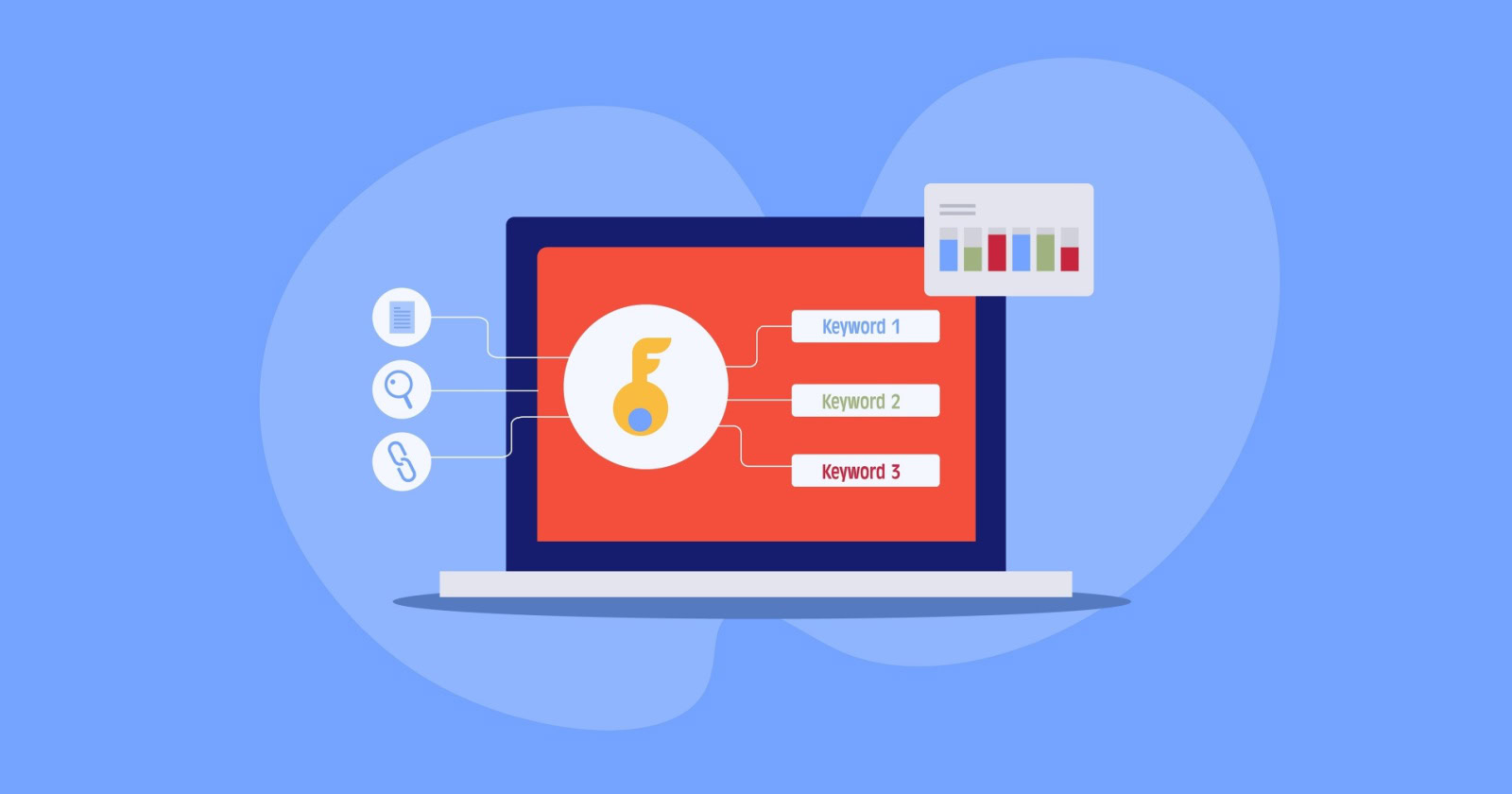Let’s be honest – PPC keyword research can be tedious.
Sifting through search terms, analyzing performance data, and trying to predict what people will type into the search bar next feels like an endless puzzle.
This is where AI can enter the game.
This isn’t just about adding another buzzword to your marketing toolbox – AI can actually save you time and give you insights you might miss on your own.
In this article, we’ll explore how AI can take the grunt work out of your keyword strategy.
Whether you’re hunting for new keywords, optimizing your existing campaigns, or cleaning up your negative keyword lists, AI offers real, actionable solutions.
Let’s break down exactly how you can use AI to level up your PPC keyword game without the headaches.
Why AI Matters For PPC Keyword Selection
Before we jump into how to use AI to enhance your keyword strategy, it’s worth understanding why AI is a game-changer for PPC.
AI tools can process vast amounts of data faster than any human ever could. They identify patterns, analyze search behavior, and even predict trends, giving you insights that are both actionable and timely.
Instead of spending hours combing through search terms, competitor ads, or campaign performance reports, AI does the heavy lifting, allowing you to focus on higher-level strategy.
More importantly, AI tools learn and adapt over time, becoming smarter with each data point they analyze.
That means your keyword research and selection process becomes not just automated, but also continually improving.
Using AI For New Keyword Research
One of the most significant ways AI can enhance your PPC strategy is by discovering new keywords.
Traditional keyword research relies on manual tools and processes, but AI tools like Google’s Keyword Planner, other third-party tools, and AI-powered tools like ChatGPT’s keyword analysis capabilities take it up a notch.
These tools don’t just spit out related search terms – they can provide context, trends, and relevance scores based on real-time data.
How AI Tools Find New Keywords
AI-powered keyword tools analyze search patterns across millions of queries, detecting emerging trends, consumer interests, and semantic relationships that would otherwise go unnoticed.
For example, if you’re managing an ad campaign for a fitness brand, AI might detect an uptick in searches for [home workout routines for busy moms] or [low-impact exercises for seniors].
Even more powerful is AI’s ability to consider user intent.
AI doesn’t just give you a list of keywords – it provides context, predicting whether a user is more likely searching for information, looking to buy, or wanting to compare products.
This helps you create campaigns that align closely with user intent, which is critical for achieving higher quality scores, leading to better ad placement.
Tools And Tactics For AI-Driven Keyword Discovery
- Google’s Keyword Planner (AI-driven recommendations): Google’s own AI-backed keyword tool not only suggests keywords but prioritizes them based on real-time search trends.
- ChatGPT or Jasper for idea generation: These tools can help brainstorm new keyword ideas based on competitor campaigns, product descriptions, or industry trends. Just input your product or service, and these AI systems will offer insights on relevant keywords, often from angles you hadn’t thought of.
Adding Keywords To Existing Campaigns
Once you’ve got a solid list of new keywords, it’s time to put them to work.
AI isn’t just great at discovering keywords – it’s also incredibly useful for helping you refine your existing campaigns.
This is especially important if your campaign has been running for a while and might need some fine-tuning.
AI For Keyword Expansion
AI can help you intelligently expand your keyword lists by finding closely related keywords, synonyms, and long-tail variations.
For example, if you’ve been running ads for a local bakery using keywords like “best bakery near me,” AI tools might suggest adding longer variations like “best custom birthday cakes in pittsburgh.”
These expanded keywords help you reach more specific audiences who are ready to convert.
Leveraging AI For Semantic Keywords
Semantic keyword matching is another area where AI shines.
Unlike traditional keyword match types, AI doesn’t rely strictly on exact keyword matches.
Instead, it understands the broader meaning behind search queries, enabling you to target more relevant searches.
Google’s AI algorithms, for instance, now consider the overall intent of a search query, offering a more nuanced keyword match than we had a few years ago.
This makes adding keywords to your campaign not just about volume but relevance and intent alignment.
Optimizing Existing Campaigns With AI Tools
- Google Ads Recommendations: Google’s built-in AI will continuously monitor your campaign and suggest keyword additions based on ongoing performance and search trends.
- AI-Powered Keyword Expansion in Optmyzr: Tools like Optmyzr integrate AI and machine learning to suggest keyword expansions and bid adjustments in real time.
- Microsoft Ads AI Integration: Microsoft’s platform offers AI-based keyword suggestions, making it easier to add or remove keywords from your existing campaigns, ensuring your ad stays relevant.
How AI Helps With Negative Keyword Selection
A successful PPC campaign isn’t just about the keywords you include – it’s also about the keywords you exclude.
This is where negative keywords come into play, and AI can help you refine your negative keyword strategy like a pro.
Common Mistakes With Negative Keywords (And How AI Can Help)
One of the most common mistakes PPC marketers make with negative keywords is not updating them regularly.
It’s easy to set a few negative keywords at the start of a campaign and then forget about them.
But search behaviors change, new trends emerge, and without adjusting your negative keyword list, you might start showing ads for irrelevant searches.
For example, a brand selling high-end outdoor gear might inadvertently show ads to people searching for [cheap camping supplies], which dilutes the brand image and wastes ad spend.
Another mistake is being too broad with negative keywords. While you want to exclude irrelevant searches, casting too wide of a net can accidentally block valuable traffic.
For instance, adding “free” as a negative keyword could prevent your ads from showing to users looking for “free delivery” or “free returns,” which are often associated with ready-to-buy customers.
This is where AI can step in and save the day.
AI tools can analyze search queries in real-time, identifying irrelevant traffic while being nuanced enough to avoid overly broad exclusions.
They allow you to add negative keywords that prevent wasted ad spend without cutting off relevant users.
AI can also spot trends in what kinds of queries lead to bounces or low engagement, helping you automatically refine your negative keyword list with precision, based on performance data.
Identifying Irrelevant Traffic With AI
AI excels at spotting patterns and trends that humans might miss.
By analyzing search terms that trigger your ads but don’t lead to conversions, AI can suggest negative keywords that will help you avoid wasted spend.
Let’s say you’re running a campaign for luxury watches, and your ads are being triggered by search terms related to “cheap watches” or “free watch giveaways.”
AI tools can analyze the performance of these search terms and suggest adding them as negative keywords.
AI can even analyze the context of negative keywords, understanding when a specific word or phrase is irrelevant in one campaign but useful in another.
This level of nuance helps ensure your ads aren’t being wasted on the wrong audience while still reaching relevant customers.
AI Tools For Managing Negative Keywords
- Google Ads Search Query Report (AI-Enhanced): Google Ads provides search query reports, and its AI-powered suggestions will flag irrelevant search terms for potential negative keyword additions.
- Custom AI Algorithms for Negative Keyword Mining: Some marketers are using AI tools like Python with machine learning libraries to automate the detection of irrelevant terms that are draining budgets.
Making AI Work For You: Practical Tips
While AI tools are incredibly powerful, the best results come from combining AI’s capabilities with human expertise.
Here are some practical tips for making AI-enhanced keyword selection work for you:
- Regularly Update Your Keyword Lists: AI tools provide real-time insights, but the digital landscape is always changing. Review and update your keyword lists at least once a month to stay ahead of emerging trends.
- Refine Your Negative Keywords Consistently: Just like with regular keywords, your negative keyword list needs to evolve. AI tools can help you keep this list up to date without much manual effort.
- Experiment with Different AI Tools: No single tool will give you everything you need. Experiment with different AI-powered platforms to find the ones that best fit your workflow.
In Summary: AI As Your PPC Keyword Sidekick
AI is not here to replace PPC marketers – it’s here to make us more efficient, more strategic, and ultimately, more successful.
By leveraging AI to enhance keyword research, optimize existing campaigns, and refine negative keyword strategies, you can free up time for more creative and strategic tasks.
The key to success is combining the power of AI with your own expertise and instincts.
After all, while AI can analyze data, it’s the human touch that ultimately connects with customers and drives results.
So, dive into AI-enhanced keyword selection and start reaping the benefits of smarter, more efficient PPC campaigns.
More resources:
- Optimizing International PPC Campaigns: Best Practices For Keyword Localization
- Ad Copy Tactics Backed By Study Of Over 1 Million Google Ads
- PPC Trends 2025
Featured Image: Sammby/Shutterstock





![[SEO, PPC & Attribution] Unlocking The Power Of Offline Marketing In A Digital World](https://www.searchenginejournal.com/wp-content/uploads/2025/03/sidebar1x-534.png)